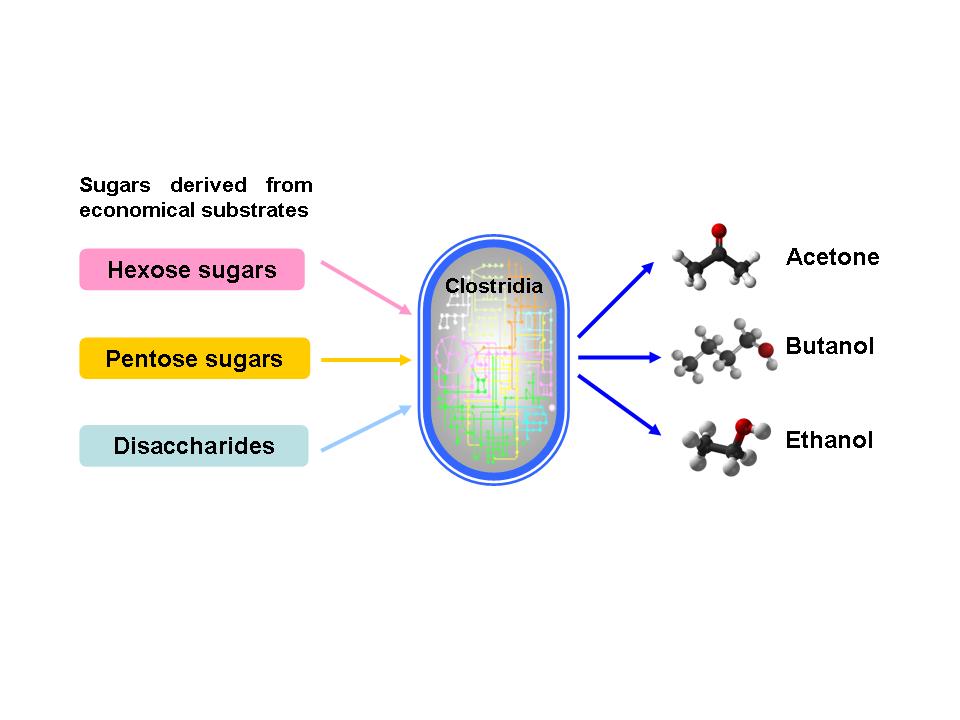Researchers Review the Regulation and Engineering of Economical Carbohydrates Metabolism by Clostridia
Solventogenic Clostridium species are Gram-positive anaerobic bacteria and important industrial microbes used for the fermentative production of various chemicals and biofuels, including acetone, ethanol and n-butanol. The efficient utilization of economical substrate-derived carbohydrates (e.g., lignocellulosic biomass and industrial by-products that contain different sugars) has attracted increasing interests.
With the growing genome information and the development of genetic tools in recent years, there were a few breakthroughs in dissecting the pathways of sugar transport, metabolism and their regulation in clostridia. Recently, Prof. JIANG Weihong and Prof. YANG Sheng from Shanghai Institutes for Biological Sciences, Chinese Academy of Sciences, were invited to review the utilization of economical substrate-derived carbohydrates by solventogenic clostridia. This review summarizes the research progress of carbohydrate metabolism by clostridia, with a focus on the related functional genes, metabolic pathways and regulatory mechanism. The process of genetic modification and metabolic engineering of clostridia was also described. At the end of the article, the remaining problems and the future research directions were discussed.
The review entitled “Utilization of economical substrate-derived carbohydrates by solventogenic clostridia: pathway dissection, regulation and engineering” was published online in Current opinion in Biotechnology on April 28, 2014.
In recent years, Prof. JIANG Weihong and Prof. YANG Sheng pay much attention to the fundamental and applied study of solventogenic clostridia. Through close cooperation with domestic and foreign research groups as well as enterprises, they have made a series of progress on developing genetic tools, genetic modification, reconstruction and regulation of metabolic pathways and industrialization. The related work have been published in the core journals in microbiology and metabolic engineering fields. Their research is supported by grants from the Ministry of Science & Technology of China, the National Natural Science Foundation of China and Chinese Academy of Sciences.
Figure legend. Overview of the pathways and the related genes for carbohydrate utilization in C. acetobutylicum and C. beijerinckii. Ellipses shaded in grey represent regulatory genes. Question marks represent genes requiring a further validation. (Image by Dr. JIANG Weihong's group)
